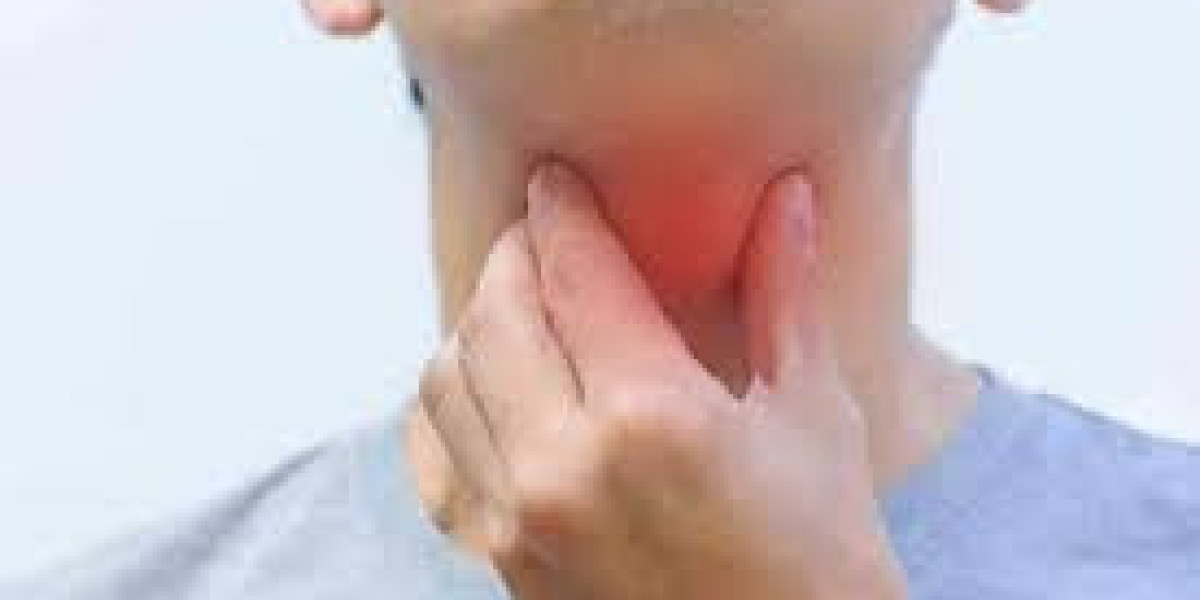Achalasia Cardia is a rare but serious condition affecting the esophagus, making it difficult for food and liquid to pass into the stomach. If left untreated, achalasia can lead to difficulty swallowing, malnutrition, and significant discomfort. If you’re experiencing symptoms such as difficulty swallowing, chest pain, or regurgitation, expert medical care is essential. Dr. Rupali Bandgar-Jankar, a renowned female gastroenterologist and gastrophysiologist in Pune, India, offers advanced and personalized achalasia cardia treatment in Pune.
With over 8 years of experience and specialized expertise in gastrointestinal motility disorders, Dr. Rupali is known for her comprehensive approach to managing Achalasia and improving the quality of life of her patients. Her expertise in diagnosing and managing esophageal motility disorders makes her one of the most trusted specialists in the region.
For consultations, diagnostic tests, or to learn more about the treatment options for Achalasia Cardia, contact Dr. Rupali Bandgar-Jankar at Kaizen Gastro Care today.
What is Achalasia?
Achalasia cardia is a motility disorder of the esophagus in which the lower esophageal sphincter (LES) fails to relax properly, and the normal muscular contractions of the esophagus are damaged. This results in difficulty swallowing (dysphagia), regurgitation of food, and sometimes chest pain.
What Are The Causes and Risk Factors of Achalasia-Cardia?
The exact cause of achalasia cardia remains unclear, but it is considered to be associated with the degeneration of nerves in the esophagus. Some possible causes and risk factors include:
- Autoimmune conditions
- Viral infections
- Genetic predisposition
- Chronic inflammation of the esophagus
What are the symptoms of achalasia-cardia?
- Difficulty swallowing (dysphagia) for solids and liquids
- Regurgitation of undigested food
- Chest pain or discomfort
- Weight loss due to difficulty eating
- Persistent heartburn or acid reflux
- Coughing or choking, especially at night
If you are experiencing any of these symptoms, it is important to consult with an Achalasia Cardia Specialist in Pune, India for an evaluation. Early diagnosis and treatment of achalasia-cardia can help prevent complications and improve your quality of life.
Diagnosis of Achalasia Cardia:
Dr. Rupali Bandgar-Jankar emphasizes a thorough diagnostic process to accurately identify Achalasia Cardia. Common diagnostic procedures include:
- Medical History: Dr. Rupali Bandgar-Jankar will ask about your symptoms, including difficulty swallowing, regurgitation of food, chest pain, and weight loss. They may also ask about your medical history and any prior treatments you have tried.
- Physical Examination: During a physical examination, Dr. Rupali Bandgar-Jankar may check for symptoms of malnutrition, dehydration, or other complications of achalasia. They may also perform a digital rectal examination to check for any abnormalities in the anal sphincter muscles.
- Barium Swallow Study: Also known as an esophagram, this test involves swallowing a barium solution while X-ray images are taken. The barium outlines the shape and movement of the esophagus, allowing your doctor to see if there are any abnormalities or blockages.
- Esophageal Manometry: This test measures the pressure inside the esophagus and the function of the lower esophageal sphincter (LES) muscle. A thin tube is inserted through the nose or mouth into the esophagus to measure these pressures while you swallow.
- Endoscopy: During an endoscopy, a flexible tube with a camera on the end is inserted through the mouth and into the esophagus. This allows your doctor to visually inspect the esophagus and look for any abnormalities.
- pH Monitoring: In some cases, a 24-hour pH monitoring test may be done to measure the amount of acid reflux in the esophagus. This test can help differentiate between achalasia and gastroesophageal reflux disease (GERD).
- CT Scan or MRI: These imaging tests may be done to rule out other conditions that can cause similar symptoms to achalasia, such as esophageal cancer or a hiatal hernia.
- HRM (High-Resolution Manometry): This advanced version of esophageal manometry provides detailed pressure measurements across the entire esophagus, offering a more precise evaluation of the disorder.
How Esophageal Manometry Helps in Treating Achalasia Cardia?
Esophageal manometry is a crucial diagnostic test that plays an essential role in diagnosing and treating Achalasia Cardia, a condition where the muscles of the esophagus do not function properly, making it challenging for food and liquids to pass into the stomach. Here’s how esophageal manometry is helps in the achalasia cardia treatment:
- Accurate Diagnosis: Esophageal manometry helps confirm the diagnosis of achalasia by measuring the pressure and motility of the esophagus.
- Identifies Abnormalities: It detects the absence of normal esophageal peristalsis and lower esophageal sphincter (LES) dysfunction, key indicators of Achalasia.
- Guides Treatment Plan: Helps in determining the appropriate treatment approach, such as pneumatic dilation, Botox injection, or surgery.
- Monitors Treatment Effectiveness: Used to assess the effectiveness of treatments like dilation or surgery by comparing pre-and post-treatment pressure measurements.
- Minimizes Complications: By accurately diagnosing and monitoring, it reduces the risk of misdiagnosis or improper treatment strategies.
- Personalized Care: Helps tailor treatment to the specific type of Achalasia, ensuring more effective management.
- Differentiates Conditions: Distinguishes achalasia from other esophageal disorders like gastroesophageal reflux disease (GERD).
Achalasia Cardia Treatment Options Based on Esophageal Manometry Results:
Here are the treatment options for Achalasia Cardia based on Esophageal Manometry results:
- Endoscopic Balloon Dilation: This minimally invasive procedure involves the use of a balloon to forcefully dilate the LES, allowing food to pass more easily. It is effective for many patients and can be repeated if symptoms recur.
- Heller Myotomy: This surgical procedure involves cutting the muscles of the LES to allow food to pass into the stomach. It is often combined with a partial fundoplication to prevent acid reflux.
- Botox Injections: Botox injections into the LES can temporarily paralyze the muscles, relieving pressure and improving swallowing. This is often used for patients who are not candidates for surgery or other procedures.
- Peroral Endoscopic Myotomy (POEM): POEM is a cutting-edge endoscopic procedure that involves creating an incision in the inner lining of the esophagus and cutting the muscle fibers of the LES. It is highly effective with a shorter recovery time compared to conventional surgery.
- Medications: Medications such as nitrates or calcium channel blockers may be prescribed to relax the LES. While these are not a long-term solution, they can provide temporary relief for mild cases.
- Lifestyle Modifications: Patients are advised to:
- Eat smaller, more frequent meals.
- Avoid lying down immediately after eating.
- Elevate the head of the bed to prevent regurgitation.
When Should You Consider Esophageal Manometry?
Esophageal manometry is advised when you experience symptoms such as difficulty swallowing, chest pain, heartburn, or regurgitation that don’t respond to typical treatments. It’s also essential for diagnosing conditions like achalasia, esophageal spasm, or gastroesophageal reflux disease (GERD).
How to prevent Achalasia Cardia?
Dr. Rupali Bandgar-Jankar shares some tips on how to prevent Achalasia Cardia:
- Eat smaller, frequent meals to reduce the strain on your esophagus.
- Take time to chew food thoroughly to reduce strain on the esophagus.
- Avoid Heavy Lifting
- Stay Hydrated
- Maintaining an upright posture during and after meals helps food pass smoothly down the esophagus.
- Manage Stress
- Avoid smoking and excessive alcohol consumption, as they can aggravate esophageal conditions.
- Monitor for Symptoms
- Stay active to maintain overall health and help with digestion.
Why Choose Dr. Rupali Bandgar-Jankar for Achalasia Cardia Treatment in Pune?
Dr. Rupali Bandgar-Jankar is a renowned GI motility and gastro physiologist in Pune with extensive expertise in diagnosing and managing achalasia cardia. Here’s why she stands out:
- Expertise and Specialization: With specialized training in gastroenterology and motility disorders, Dr. Rupali has the expertise to accurately diagnose and effectively treat achalasia cardia. She stays updated with the latest advancements in the field, ensuring patients receive the best care possible.
- Advanced Diagnostic Tools: Dr. Rupali’s clinic is equipped with state-of-the-art technology for accurate and early diagnosis of achalasia cardia, including high-resolution manometry and advanced imaging techniques.
- Personalized Treatment Plans: Every patient receives a tailored treatment approach based on their specific symptoms and the severity of the condition.
- Minimally Invasive Procedures: Dr. Rupali specializes in cutting-edge minimally invasive techniques such as POEM and endoscopic balloon dilation, ensuring faster recovery and minimal discomfort.
- Compassionate Care: Known for her patient-centric approach, Dr. Rupali takes the time to understand her patients’ concerns and provides comprehensive guidance throughout the treatment journey.
- Holistic Healing Philosophy: Beyond addressing the physical symptoms, Dr. Rupali emphasizes complete healing, including dietary advice and lifestyle changes to improve overall quality of life.
- Continued Support: Rupali provides ongoing support and follow-up care for patients with achalasia cardia, ensuring they receive the necessary support and guidance throughout their treatment and recovery.
Request a Call Back:
If you or a loved one is struggling with the symptoms of achalasia cardia, don’t delay seeking expert care. Dr. Rupali Bandgar-Jankar is dedicated to providing world-class achalasia cardia treatment in Pune, helping patients regain their health and quality of life.
Contact her clinic today to schedule a consultation and take the first step toward effective management of achalasia cardia. For more information about our comprehensive treatment options, or to request an appointment with the best female Gastroenterologist in Pune call 9763635252.







